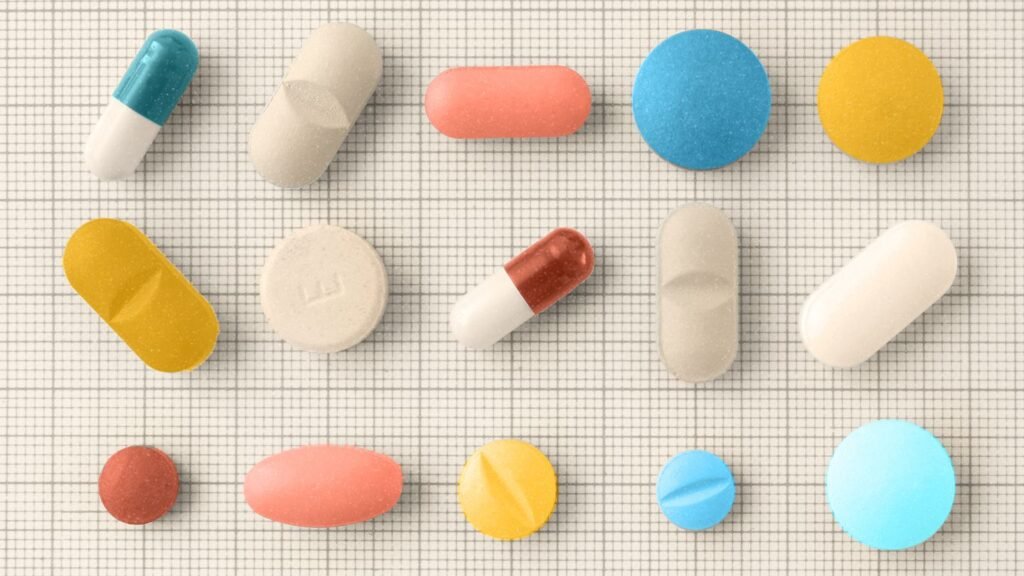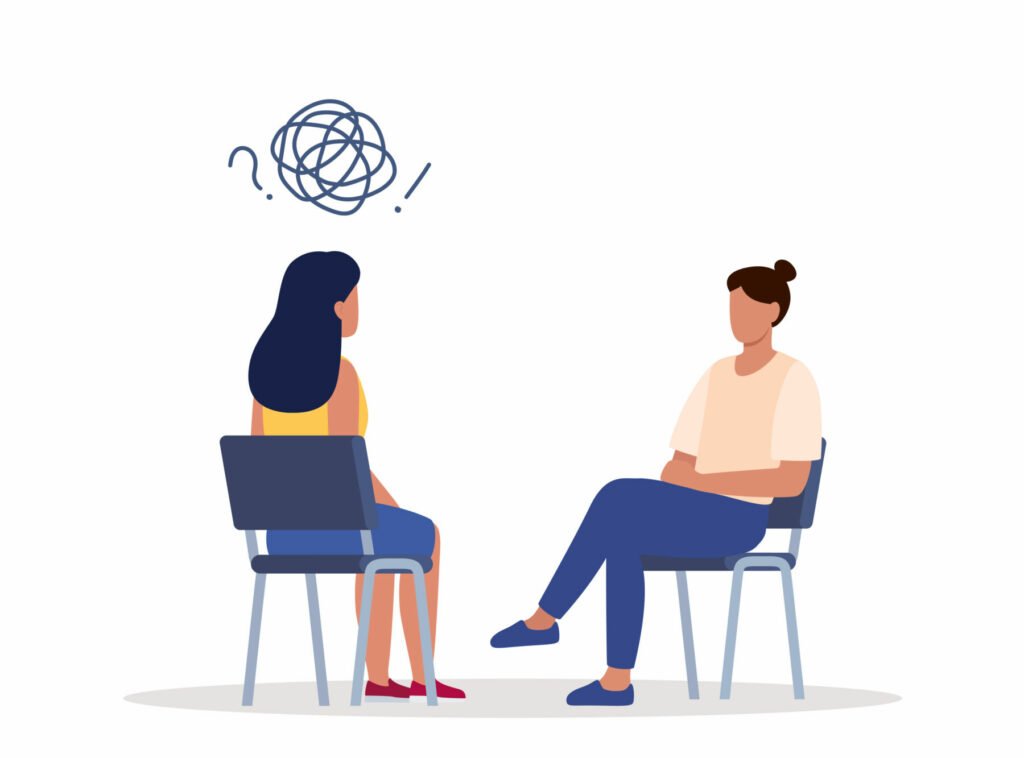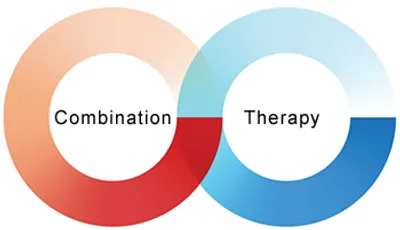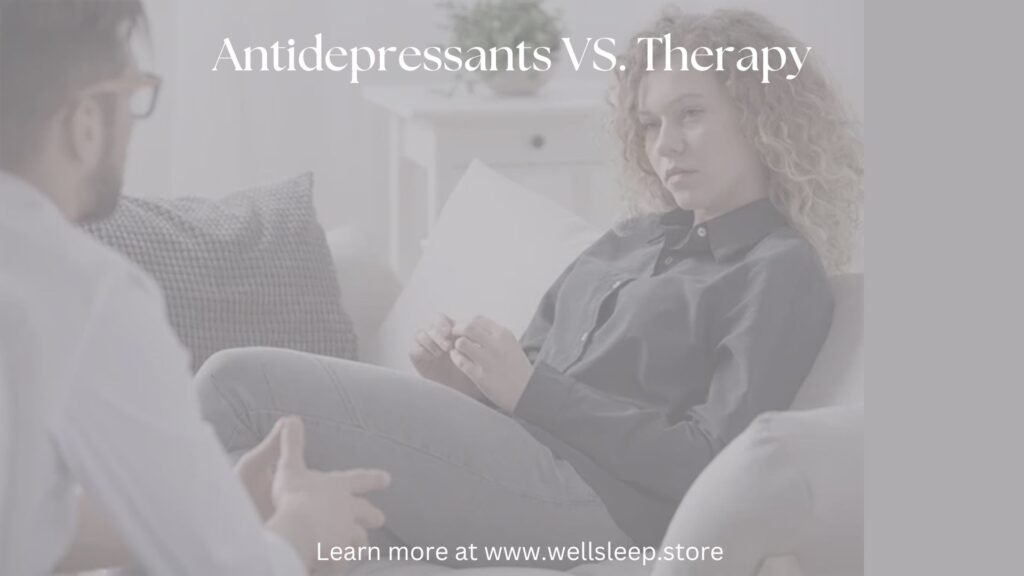Antidepressants vs. Therapy: Can They Work Together for Better Mental Health?
Antidepressants: Mental health care has evolved significantly over the years, providing a wide array of treatment options for individuals struggling with conditions like depression, anxiety, and other mood disorders. The question of how best to approach mental health treatment has become increasingly complex as new therapies and medications continue to emerge. Among the most common and well-studied approaches are antidepressant medications and psychotherapy.
While some individuals find relief through one of these methods alone, others benefit from a combination of the two. This dual approach is not merely a compromise but a deliberate and effective strategy to address the multifaceted nature of mental health challenges. By exploring how antidepressants and therapy work individually and in tandem, we can uncover why combining these treatments often leads to better outcomes. In this article, we will delve into the strengths and limitations of both approaches, the science behind their integration, and how this combined treatment model can pave the way for improved mental well-being. Let’s begin by understanding the unique contributions of each treatment method to mental health care.
Understanding Antidepressants
Antidepressants are medications designed to alleviate symptoms of depression and other mental health conditions by balancing chemicals in the brain called neurotransmitters, including serotonin, dopamine, and norepinephrine. Antidepressants come in more than just one type.
The different types of antidepressants, such as SSRIs, SNRIs, and TCAs, are given based on the severity of symptoms, medical history, and reactions to previous treatments.

Advantages of Antidepressants:
a. Symptom Relief: Antidepressants can reduce severe symptoms, such as persistent sadness, lack of energy, and sleep disturbances, allowing individuals to regain functionality.
b. Accessibility: With a prescription, antidepressants are widely available and relatively easy to use.
c. Physiological Impact: They directly target the brain’s chemistry, addressing underlying biological factors of mental health conditions.
Limitations of Antidepressants:
a. Delayed Onset: Many antidepressants take weeks to show noticeable improvements.
b. Side Effects: Nausea, weight changes, and sexual dysfunction are common.
c. It is not a cure: The medication controls symptoms but does not resolve the emotional or psychological issues.
Understanding Therapy
Therapy is a broad term used to describe treatment aimed at helping individuals manage emotional, mental, or psychological issues. It typically involves talking with a trained professional, such as a psychologist, counselor, or therapist, who helps the person explore their thoughts, feelings, and behaviors. Therapy can be beneficial for a wide range of conditions, including anxiety, depression, trauma, and relationship struggles. The goal of therapy is to provide a safe and supportive environment where individuals can gain insight into their issues, develop coping strategies, and improve their overall well-being.
Therapies vary in their approach, depending on the individual’s needs. Some of the most common forms include cognitive-behavioral therapy (CBT), which focuses on changing negative thought patterns; psychodynamic therapy, which delves into unconscious processes and past experiences; and humanistic therapies, which emphasize personal growth and self-acceptance. Each type of therapy has its own methods and techniques, but they all aim to create a space where clients can better understand themselves and their challenges.
The therapeutic relationship itself is a vital aspect of the process. A strong, trusting bond between the therapist and the client is essential for progress. This relationship allows the individual to feel heard, validated, and understood, which can lead to positive changes in thought patterns and behaviors. Therapy also teaches clients important life skills, such as emotional regulation, problem-solving, and communication, which can be applied in various situations to improve relationships and cope with everyday stressors.

Pros of Therapy
a. Root Cause Exploration: Therapy helps uncover the underlying causes of mental health struggles, such as trauma, negative thought patterns, or relationship issues.
b. Skill Building: It teaches one ways of coping and problem-solving regarding their stress and feelings.
c. Long-term Gains: Most of the tools and insights acquired from therapy go down in one’s life in the long run to become a resilient personality.
Therapy Limitations:
a. Time-Consuming: It requires regular sessions for weeks or months.
b. Costly: For many people, therapy can be expensive as one needs access and location.
c. Variable Effectiveness: Whether therapy is actually successful depends mainly on the rapport formed between the counselor and the patient and the willing involvement of an individual.
Why Combination Therapy Makes Sense
Combinations of therapy and antidepressant drugs have specific advantages over either therapy alone or antidepressants alone. Combining them can look into both sides of the nature of mental health. Here’s why:

1. Quick relief for symptoms and more lasting solutions
Antidepressants may work more rapidly on acute symptoms like extreme sadness or anxiety, thus enabling patients to better cope with the activities of their daily lives. Most often, the relief from such symptoms allows them to more readily participate in therapy to develop long-term solutions for not falling back into their depressive states.
2. Improved Coping Mechanisms
Therapy helps develop skills to master stress, reveal triggers, and alter negative thought patterns. Put together with pharmacotherapy, therapy forms a combined two-layer system: the pharmaceuticals stabilize emotions, and the therapy works upon behaviors and the thought process.
3. Personalized Treatment Plans
It’s pretty individualized. For some, antidepressants alone might be enough; others would need therapy. A combined treatment modality allows health care providers to have the latitude of tailoring treatment based on the severity of symptoms and personal preference.
4. Treatment-Resistant Depression
Some patients suffering from treatment-resistant depression do not fully respond to antidepressants or therapy alone. Combining both treatments has proved to significantly improve the outcome for such patients.
Practical Tips for Combining Antidepressants and Therapy
a. Work with Professionals: Collaborate with a psychiatrist for medication management and a therapist for psychological support. Clear communication between the two can optimize care.
b. Be Patient: Finding the right medication and therapeutic approach can take time. Adjustments may be necessary as treatment progresses.
c. Stay Consistent: Attend therapy sessions regularly and take medications as prescribed. Consistency is key to achieving the best outcomes.
d. Monitor Progress: Track changes in symptoms and communicate them to your healthcare providers. This feedback helps fine-tune your treatment plan.
Conclusion
The debate of antidepressants versus therapy is no longer over which one to choose because they complement each other and can be tailored for an all-rounded approach to mental health. In addressing both the biological and emotional dimensions of mental health conditions, antidepressants with therapy can be a very strong route to wellness and resilience. Though, If you or a family member is facing mental health issues, consider speaking with healthcare professionals about a combination treatment plan-it may be the ticket to better mental health.

